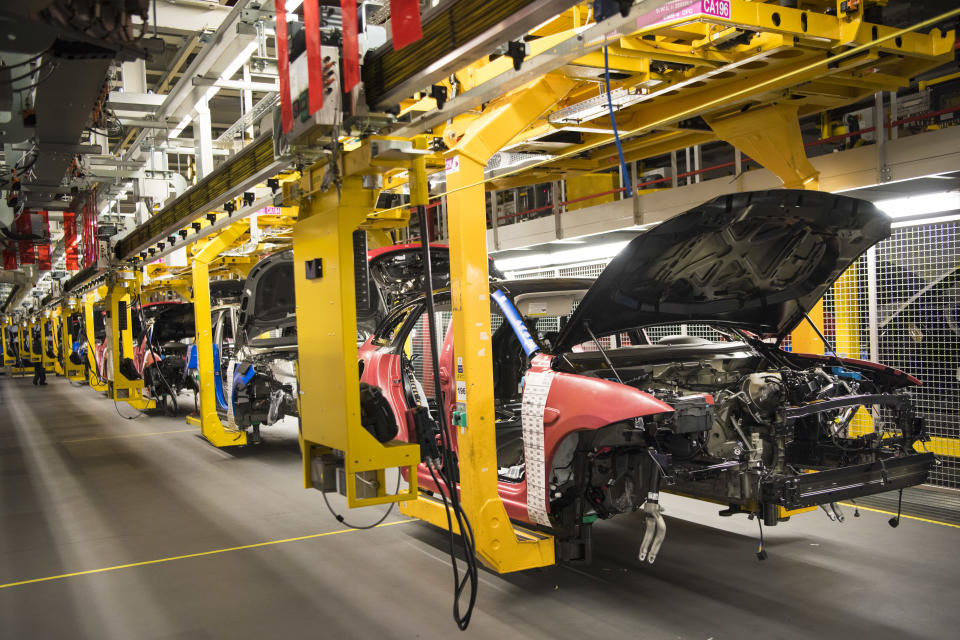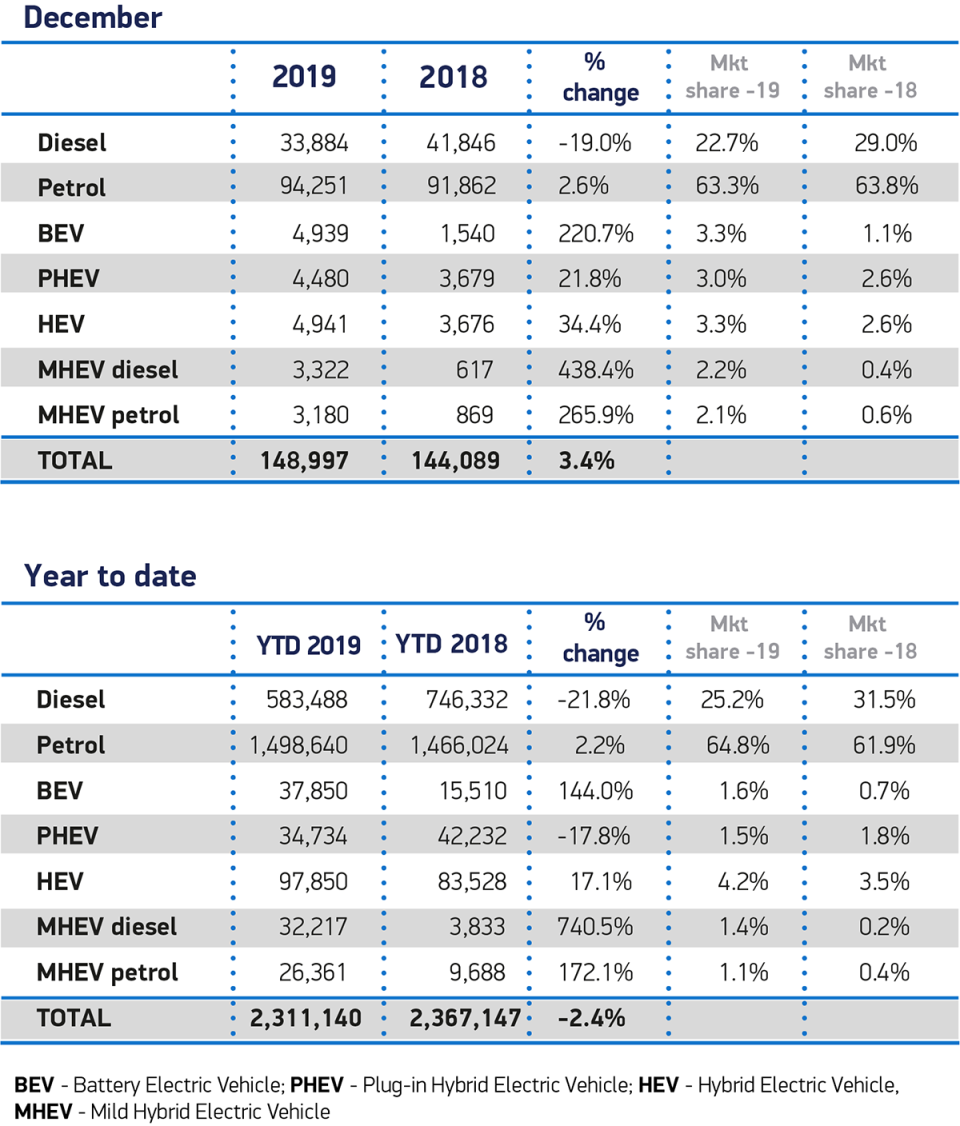UK car sales hit six-year low thanks to Brexit and diesel slump

UK car sales fell to a six-year low in 2019 as the industry contended with Brexit-related uncertainty and consumer confusion about clean air zones and diesel vehicles, according to the Society of Motor Manufacturers and Traders (SMMT).
Some 2.3 million new cars were registered in the UK in 2019, a 2.4% drop-off on the previous year.
READ MORE: No-deal Brexit would cost UK car industry £40bn by 2024
Last year, which saw the lowest annual total car registrations since 2013, was the third consecutive year that car sales declined.
SMMT CEO Mike Hawes said on Monday that 2019 was “a turbulent 12 months” for the UK auto sector, noting that the decline in sales was “a major challenge”.
Hawes pointed to Brexit, noting that there was “very weak” consumer confidence in the UK and “confusion” about how diesel cars will be affected by clean air zones.

The zones, also known as low-emissions zones, are being considered in UK cities such as Birmingham, London, and Leicester.
From 2021, Bristol is set to become the UK’s first city to ban diesel cars from entering parts of its city centre.
Hawes said that differing proposals from cities across the UK could result in a “patchwork of different standards” — something that had prompted people to hold onto their older cars for longer.
READ MORE: The grim state of the UK car industry in one chart
He predicted that car sales would drop by a further 1.6% in 2020.
Last year was a record year for zero-emission car sales, however.
Registrations of battery electric cars surged by 144%, the SMMT said. Hybrid electric vehicles continued to dominate the sector, with registrations increasing by more than 17% to 97,850 units.

“A third year of decline for the UK new car market is a significant concern for industry and the wider economy. Political and economic uncertainty, and confusing messages on clean air zones have taken their toll on buyer confidence, with demand for new cars at a six-year low,” Hawes said.

 Yahoo Finance
Yahoo Finance 
